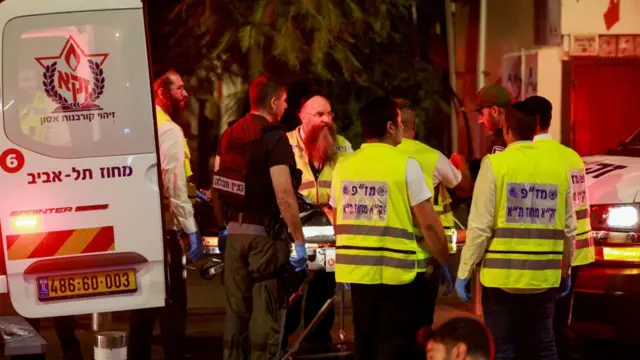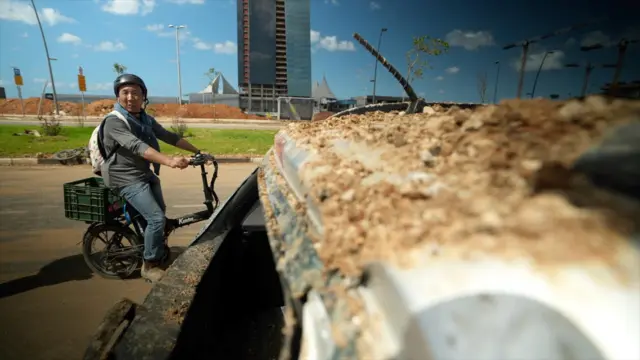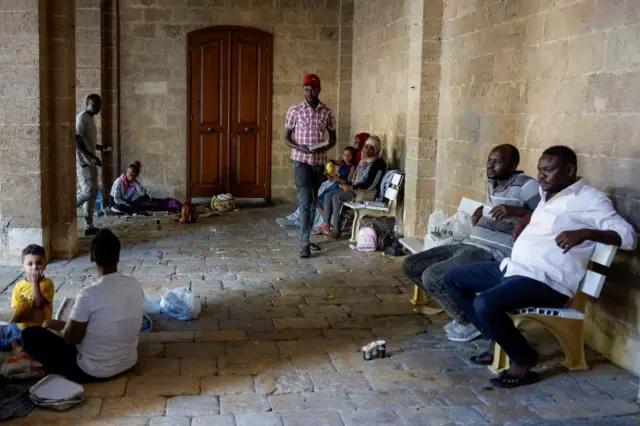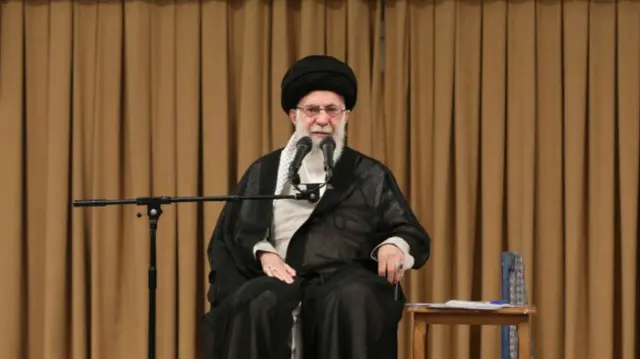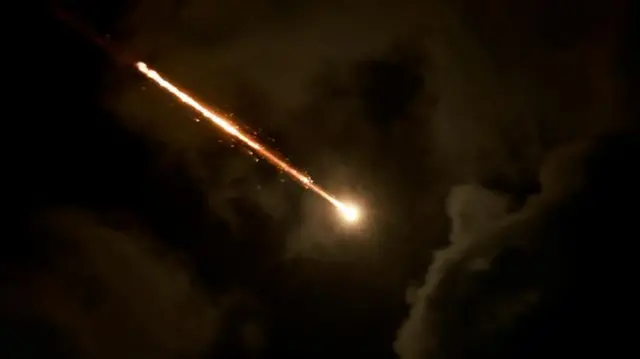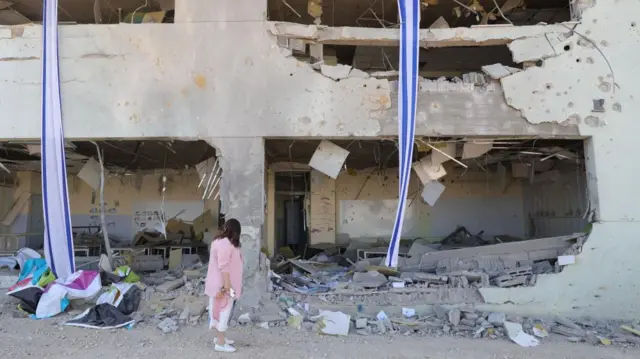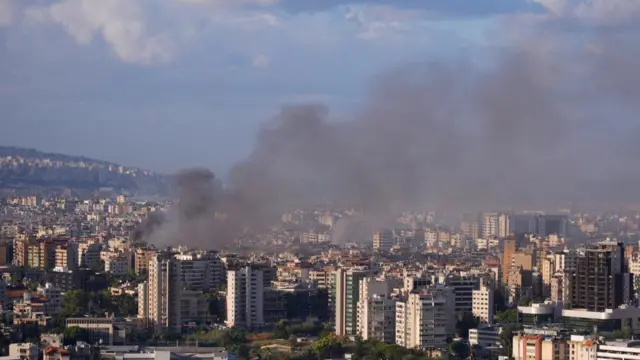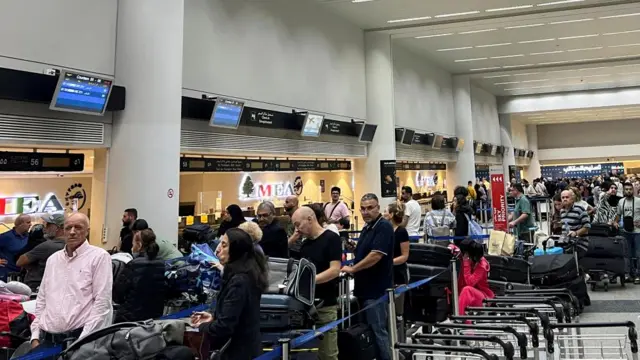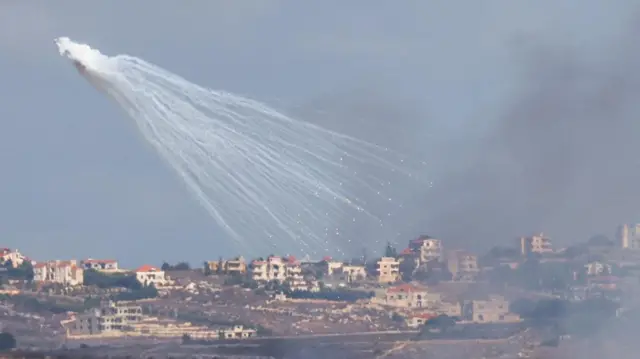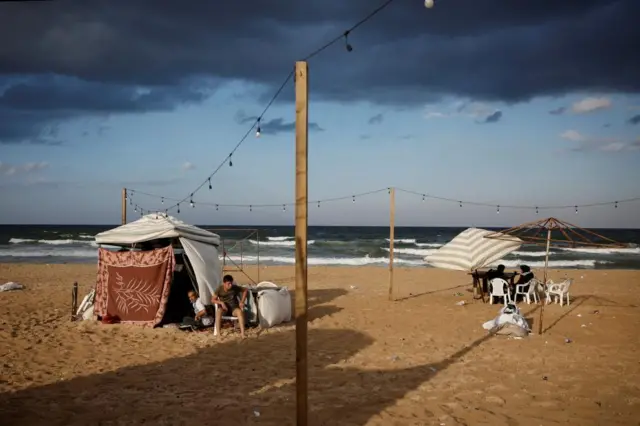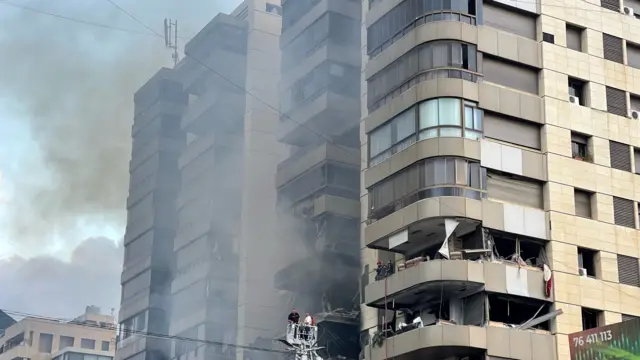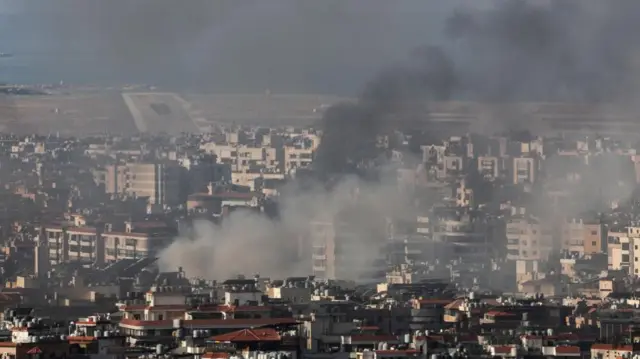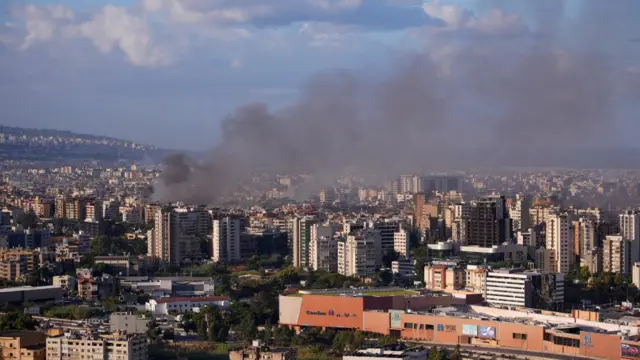Greek citizen among those killed in Tel Avivpublished at 11:15 British Summer Time 2 October
Nikos Papanikolaou
BBC News
Further to our previous post, a Greek citizen who lives in Jerusalem was among those killed in the gun and knife attack in Tel Aviv yesterday.
According to sources, the victim was a 20-year-old man born in Thessaloniki, Greece.
"We unequivocally condemn yesterday's terrorist attack in Tel Aviv's Jaffa district," the foreign ministry said in a statement.
